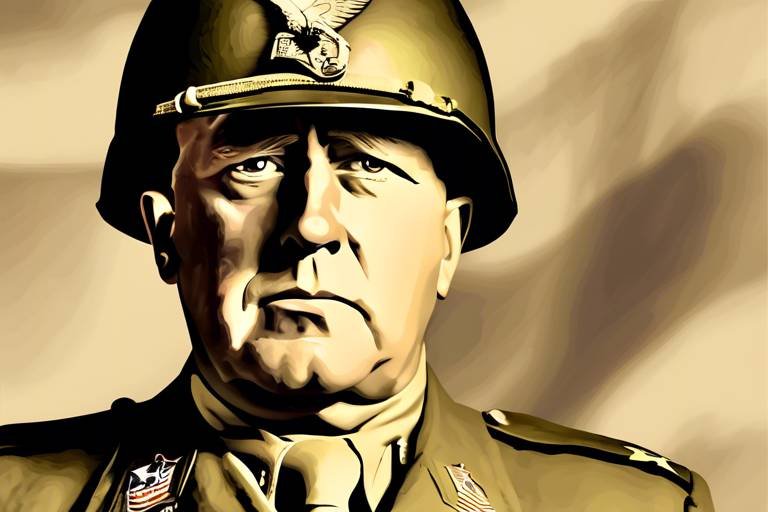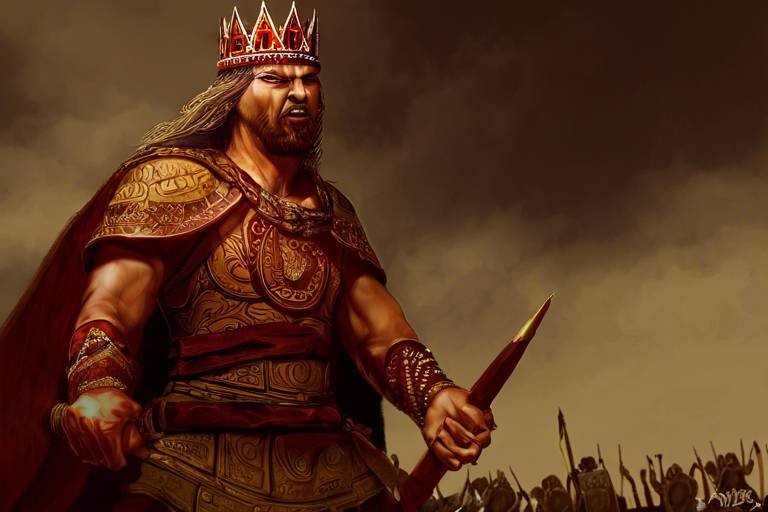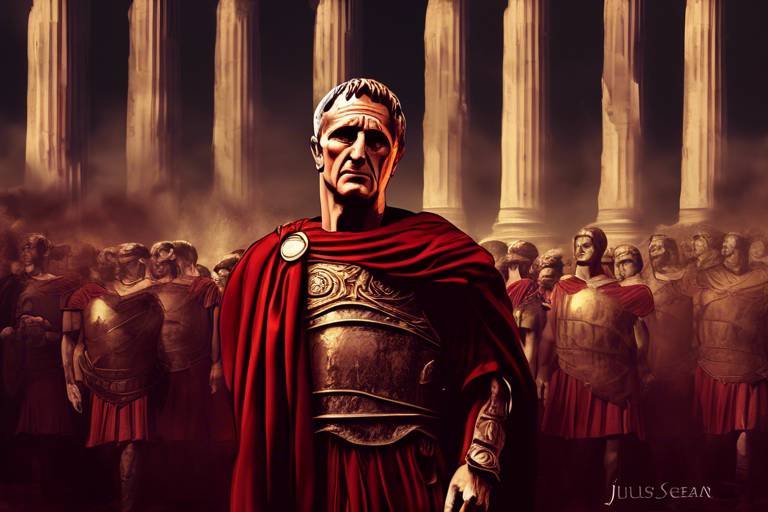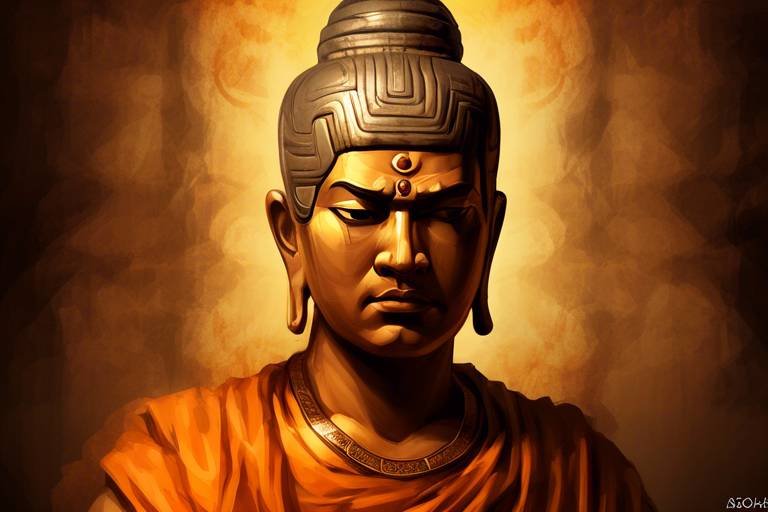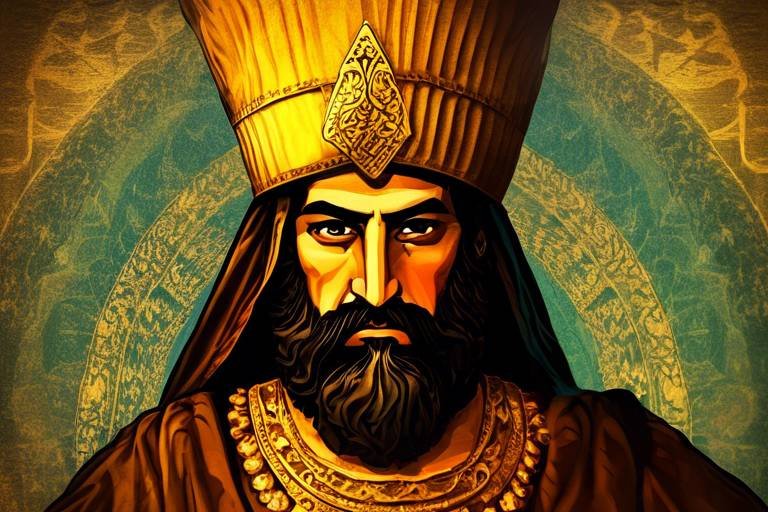Alexander II: The Tsar Liberator
When it comes to Russian history, one figure stands out as a beacon of change and progress - Alexander II, also known as the Tsar Liberator. His reign marked a pivotal moment in the country's trajectory, characterized by significant reforms and the abolition of serfdom in 1861. Let's delve into the life and legacy of this transformative ruler.
Alexander II's early life and education played a crucial role in shaping his reign as the Tsar of Russia. Raised in a royal environment, he was exposed to the complexities of governance from a young age. His education instilled in him a sense of duty towards his people and a vision for a modernized Russia.
As a reformist leader, Alexander II implemented a series of progressive policies aimed at modernizing the country. His military, judicial, and administrative reforms were groundbreaking, setting Russia on a path towards transformation and development. However, it was his decision to emancipate the serfs in 1861 that truly defined his legacy.
The emancipation of the serfs was a historic moment in Russian history, marking the end of a centuries-old system of bondage. Alexander II's bold move aimed to address the social and economic injustices perpetuated by serfdom, paving the way for a more equitable society.
Despite his noble intentions, Alexander II faced numerous challenges and opposition in implementing his reforms. Political adversaries and revolutionary movements posed significant threats to his rule, leading to multiple assassination attempts that shook the foundation of his reign.
However, the legacy of Alexander II endured beyond his tumultuous reign. His reforms left a lasting impact on Russian society, politics, and future generations. The Tsar Liberator's contributions to the transformation of Russia cannot be understated, as his progressive vision laid the groundwork for a more modern and just nation.
Looking back from a historical perspective, Alexander II's reign as the Tsar Liberator remains a testament to the power of reform and resilience. His legacy serves as a reminder of the importance of visionary leadership and the enduring impact of bold decisions on shaping the course of a nation.

Early Life and Education
Exploring the life and reign of Alexander II, the Russian Tsar known for his significant reforms and the abolition of serfdom in 1861, marking a pivotal moment in Russian history.
Alexander II, born on April 17, 1818, in Moscow, was the eldest son of Tsar Nicholas I. His early years were marked by strict upbringing and rigorous education, instilling in him a sense of duty and responsibility towards his future role as the Tsar of Russia. Despite the pressures of royalty, Alexander II's education was comprehensive, encompassing subjects ranging from history and languages to military strategy and governance.

Reformist Policies
During his reign as the Tsar of Russia, Alexander II implemented a series of bold reformist policies that aimed to modernize and transform the Russian Empire. These reforms touched various aspects of society, including the military, judiciary, and administration, reflecting Alexander II's vision for a more progressive and efficient Russia.
One of the most significant reforms introduced by Alexander II was the emancipation of the serfs in 1861. This historic decree aimed to address the centuries-old issue of serfdom in Russia by granting freedom to millions of serfs who were bound to the land. The abolition of serfdom marked a pivotal moment in Russian history, signaling a shift towards a more liberated society.
In addition to the emancipation of the serfs, Alexander II also focused on judicial reforms to modernize the Russian legal system. These reforms included the introduction of trial by jury, which aimed to ensure a fairer and more transparent legal process. By implementing these changes, Alexander II sought to create a more just and equitable society for all Russian citizens.
Despite facing challenges and opposition from various quarters, including political adversaries and revolutionary groups, Alexander II remained steadfast in his commitment to reform. The Tsar's determination to push forward with his reformist agenda, despite the risks and threats to his own life, underscored his dedication to modernizing Russia and improving the lives of its people.
The legacy of Alexander II's reformist policies continues to resonate in Russian history, with his reign being remembered as a period of significant transformation and progress. The impact of his reforms on Russian society, politics, and future generations is undeniable, shaping the course of the country's development for years to come.

Emancipation of the Serfs
The in 1861 marked a monumental shift in Russian history, as Tsar Alexander II took a bold step towards abolishing serfdom in the country. This reform was not merely a legal change but a profound social transformation that aimed to address the centuries-old system of serfdom that had plagued Russia.
Under the Emancipation Edict, over 23 million serfs were granted their freedom, allowing them to own property, marry without the landlord's permission, and pursue various occupations. However, this liberation was not without its challenges, as the newly freed serfs faced uncertainties and struggles in adjusting to their newfound freedom.
One of the key aspects of the Emancipation reform was the redistribution of land. Serfs were granted plots of land from their former landlords, but the process was complex and often led to disputes and dissatisfaction among both the serfs and the landowners. The transition from serfdom to freedom was a turbulent period marked by economic hardships and social tensions.
Despite the challenges, the Emancipation of the Serfs represented a significant step towards modernizing Russian society and economy. It laid the foundation for further reforms and set the stage for the gradual transformation of Russia into a more progressive and equitable nation.

Judicial Reforms
Alexander II's judicial reforms were a crucial aspect of his efforts to modernize Russia's legal system. One of the most significant changes he implemented was the introduction of trial by jury in 1864, aiming to provide a fairer and more transparent legal process. This reform allowed ordinary citizens to participate in the legal system, marking a shift towards a more democratic approach to justice.
Additionally, Alexander II established the District Courts in 1864, which aimed to decentralize the legal system and improve access to justice for the Russian population. These courts played a vital role in ensuring that legal proceedings were conducted efficiently and fairly at the local level, enhancing the overall effectiveness of the judicial system.
Furthermore, the Tsar implemented reforms to enhance the independence of the judiciary and reduce corruption within the legal system. By introducing new regulations and procedures, Alexander II sought to uphold the rule of law and promote accountability among judges and legal officials. These measures were essential in strengthening the credibility and integrity of the Russian judiciary.

Challenges and Opposition
During his reign, Alexander II faced numerous challenges and strong opposition to his reformist policies. The most significant obstacle he encountered was the resistance from conservative elements within the Russian nobility and bureaucracy, who were wary of the drastic changes he sought to implement. These traditionalists viewed the reforms as a threat to their established privileges and power, leading to fierce opposition to Alexander's progressive agenda.
Furthermore, revolutionary movements and radical political groups posed a constant challenge to the Tsar's authority. These dissenting factions, including the populist movement and radical intellectuals, criticized Alexander II for not going far enough in his reforms and demanded more extensive changes to the autocratic system. The growing discontent among these groups fueled social unrest and political instability throughout the empire.
Moreover, the assassination attempts on Alexander II further underscored the depth of opposition he faced. The Tsar survived multiple attacks orchestrated by revolutionary organizations, such as the People's Will, which aimed to overthrow the autocracy and establish a democratic government. These violent acts not only endangered Alexander's life but also shook the foundations of his rule, prompting him to adopt more repressive measures in response to the escalating threats.

Assassination Attempts
During his reign, Alexander II faced numerous assassination attempts orchestrated by revolutionary groups seeking to overthrow the autocratic regime. These attempts were a testament to the deep-seated opposition and discontent prevalent in Russian society at the time. The Tsar's progressive reforms and liberal policies made him a target for radical factions who saw him as a symbol of oppression and tyranny.
One of the most notable assassination attempts on Alexander II occurred in 1866 when a bomb was thrown at his carriage by a member of the revolutionary organization "People's Will." Although the Tsar survived this attack, it served as a stark reminder of the dangers he faced as a reformist ruler challenging the status quo.
The relentless efforts to assassinate Alexander II continued, with several more plots unfolding over the years. In 1879, a group of revolutionaries known as the "Narodnaya Volya" (People's Will) made multiple attempts on the Tsar's life, culminating in the tragic assassination in 1881. A bomb attack carried out by the group resulted in Alexander II's death, marking the end of his reign and the era of reform he had ushered in.
These assassination attempts not only posed a direct threat to Alexander II's life but also had far-reaching implications for the course of Russian history. The violent means employed by revolutionary groups underscored the deep-seated tensions and conflicts within Russian society, highlighting the challenges faced by those advocating for change in a repressive political environment.

Legacy and Impact
As we delve into the legacy of Alexander II, it becomes evident that his reign as the Tsar Liberator left an indelible mark on Russian history. His bold reforms, most notably the emancipation of the serfs in 1861, transformed the social fabric of Russia and set the stage for further modernization.
Alexander II's impact extended beyond the abolition of serfdom. His judicial reforms, including the introduction of trial by jury, aimed to bring about a fairer and more transparent legal system. These changes not only enhanced the rule of law but also contributed to a more just society.
Despite his progressive policies, Alexander II faced significant challenges and opposition. Political adversaries and revolutionary movements sought to undermine his reforms, leading to assassination attempts that shook the foundations of his reign. However, his resilience in the face of adversity exemplified his commitment to change.
The legacy of Alexander II reverberates through Russian society to this day. His reign symbolizes a turning point in the country's history, marking a shift towards modernity and progress. The reforms he enacted laid the groundwork for future developments and influenced generations to come.
In assessing Alexander II's legacy, one cannot overlook the historical perspective. His title as the Tsar Liberator encapsulates the essence of his rule and the profound impact he had on Russia. By examining his reforms and their lasting effects, we gain a deeper understanding of the transformative power of visionary leadership.

Historical Perspective
Exploring the life and reign of Alexander II, the Russian Tsar known for his significant reforms and the abolition of serfdom in 1861, marking a pivotal moment in Russian history.
An overview of Alexander II's upbringing, education, and early influences that shaped his reign as the Tsar of Russia.
Delving into the various reforms implemented by Alexander II during his rule, including military, judicial, and administrative changes aimed at modernizing Russia.
Detailing the historic emancipation of the serfs in 1861, a landmark reform that aimed to address the issue of serfdom in Russia.
Exploring Alexander II's efforts to reform the Russian legal system, including the introduction of trial by jury and other significant changes.
Examining the obstacles and resistance faced by Alexander II in implementing his reforms, including political opposition and revolutionary movements.
Discussing the numerous attempts on Alexander II's life by revolutionary groups and the impact of these events on his reign and policies.
Evaluating the lasting legacy of Alexander II's reforms and his impact on Russian society, politics, and future generations.
Reflecting on the historical significance of Alexander II's reign as the Tsar Liberator and his contributions to the transformation of Russia.
Frequently Asked Questions
- What were the key reforms implemented by Alexander II?
Alexander II implemented various reforms during his reign as the Russian Tsar, including the emancipation of the serfs in 1861, judicial reforms such as the introduction of trial by jury, military reforms, and administrative changes aimed at modernizing Russia.
- How did the abolition of serfdom impact Russian society?
The abolition of serfdom in 1861 had a profound impact on Russian society, marking the end of a system that tied peasants to the land. It aimed to address the issue of serfdom and bring about social and economic changes, although the transition was not without challenges.
- What challenges did Alexander II face in implementing his reforms?
Alexander II faced various challenges in implementing his reforms, including political opposition, resistance from conservative factions, and revolutionary movements seeking more radical changes. He also survived multiple assassination attempts, highlighting the resistance to his reformist policies.
- What is Alexander II's legacy in Russian history?
Alexander II's legacy in Russian history is that of the "Tsar Liberator" who initiated significant reforms that transformed the country. His reign marked a pivotal moment in Russian history, influencing future generations and shaping the trajectory of Russian society and politics.


